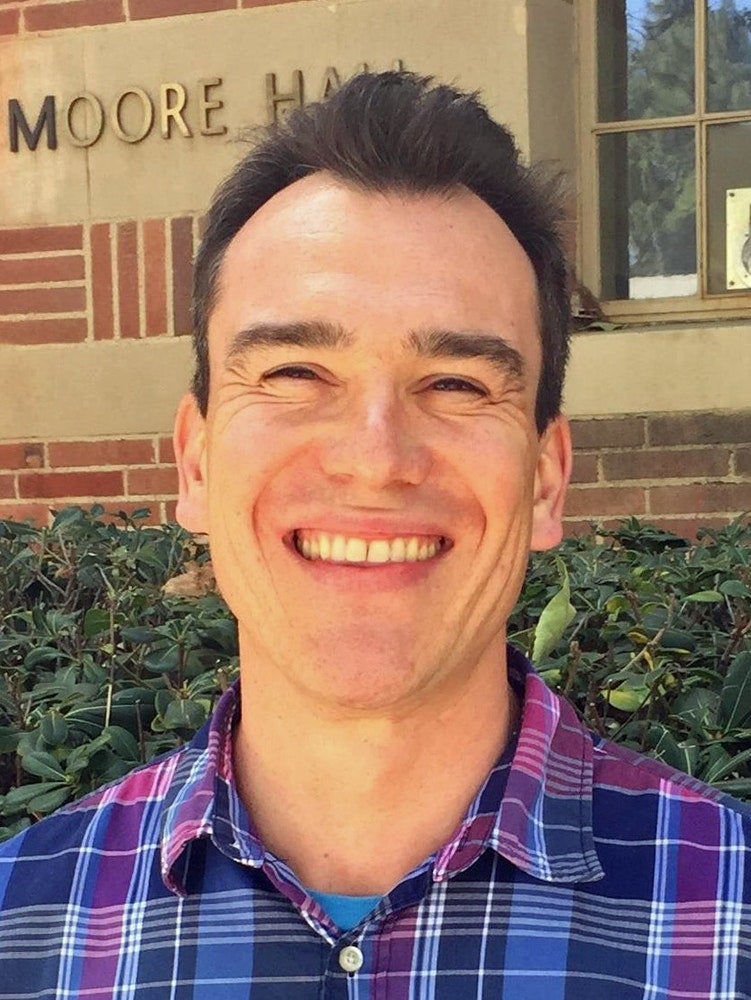UCLA Associate Professor of Education Ozan Jaquette recently published his co-written article,“Coming Soon to a Neighborhood Near You? Off-Campus Recruiting by Public Research Universities” in the American Educational Research Journal.
The article, based on Jaquette’s national study of substantial racial and socioeconomic inequity in schools and communities that receive recruiting visits from public research universities. He says that a common misconception throughout the research on admissions is that, “It creates the sense amongst policymakers that colleges and universities are just passive recipients of applications and then they make the decision.”
“The broader research is trying to convey that colleges and universities work a lot to get certain people to apply,” Jaquette says. “In the first place, they do a lot of recruiting – not passive recipients at all.”
The study by Jaquette and his co-authors shows that out-of-state off-campus visits from admissions officers at public research universities are targeted largely toward private high schools in affluent and predominantly White communities.
“What we found which was surprising is that 12 of the 15 public research universities in our sample visited more out-of-state high schools than in-state high schools and those out-of-state visits [are a] disproportionate number of visits to private high schools,” Professor Jaquette says. “This flies in the face of the public rhetoric that universities have about their commitment to access. They say they want to diversify social mobility, but then who they are recruiting very much targets a different population than what they say.”
The colleges and universities in Jaquette’s study include the University of Alabama, South Carolina, University of Colorado Boulder, University of Kansas, Rutgers University, and the University of Pittsburgh. He says that among admissions officers’ in-state visits to high schools, there was not much income disparity. However, the difference was dramatic in regard to the schools visited out-of-state.
Jaquette notes that while attracting more affluent students to college towns may be good for local businesses while the students are in residence, but that the state economy will not positively benefit, except for those areas that students consider desirable places to live after graduation. He also highlights the positive and negative impacts for local, first-generation college students, who have to navigate the campus climate alongside more affluent, and less racially diverse out-of-staters.
“A lot of the public universities that are that aren’t as highly ranked are going after cash grabs when they go after out-of-state students,” Jaquette points out. “They’re not competing for the most high-achieving [students]. The out-of-state student population may not be as focused on academics. That can create an alienating environment for first-generation students that really want to push themselves, but then they feel ridiculed that they’re the ones trying too hard.”
Jaquette says that gathering the data through web scraping of admissions officers’ travel schedules and by issuing public records requests, was extremely difficult. In order to conduct the study, Jaquette had to learn new programming skills that he now teaches his students in order to enhance their research toolbox. (Visit these links for information on “Introduction to Programming and Data Management” and “Fundamentals of Programming.”)
“We’re big believers in using and learning data science and programming skills to do critical work, because it enables you to collect data that you wouldn’t otherwise be able to collect,” Professor Jaquette says. “It’s been really rewarding to teach those things to UCLA students and see them start to use it for their own work. We’re helping to make students feel empowered [that] they can do this programming and data science work, showing them that this work can be extremely critical, and that it can be used to to do very provocative research.”
Jaquette is currently partnering with the Lawyers’ Committee for Civil Rights and several law firms on a data collection about “student list purchases,” which is the practice of purchasing the contact information of prospects from the College Board and ACT by public universities.
“Because student list purchases often target small geographic localities, this project focuses on the link between residential racial segregation and racial inequality in which prospects get recruited,” notes Jaquette. “We appreciate any university that’s willing to engage with us. These are public records, but when we do finally publish the data, we want it to be even-handed, and not [seen as] trying to go after them.
“In the first policy report that will come out – probably in the fall – we will go to some lengths to [say] these are the universities that have given us data – we’re not going to try to destroy them. But then, many universities are pretty intransigent and so there, we have to apply more more pressure.”
“Professor Jaquette and his team have exposed the link between obscure college recruitment practices and the underrepresentation of Black and Brown students at colleges nationwide, and the national Lawyers’ Committee is honored to be part of this groundbreaking research project,” says David Hinojosa, director of the Educational Opportunities Project at the Lawyers’ Committee for Civil Rights Under Law. “The inequity caused by these practices highlights the need for education advocates and the civil rights community to be vigilant and to insist that colleges do more—not less—to create opportunity for talented students of color.”
To read Professor Jaquette’s co-written article, “Coming Soon to a Neighborhood Near You? Off-Campus Recruiting by Public Research Universities,” visit the Sage Publications website.
